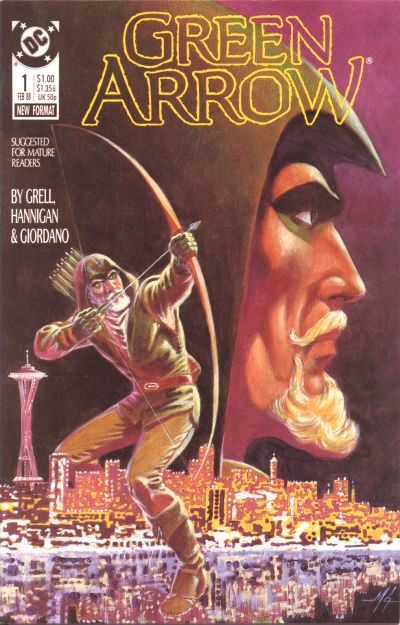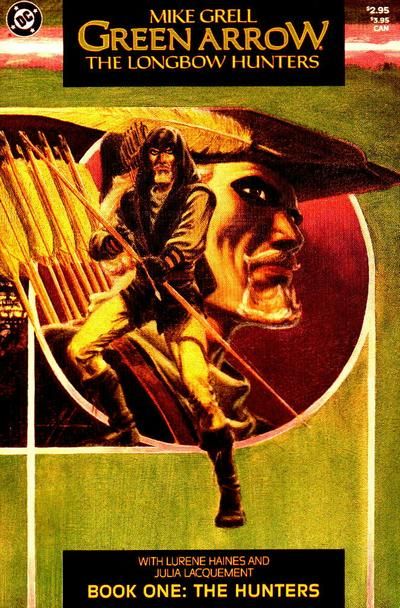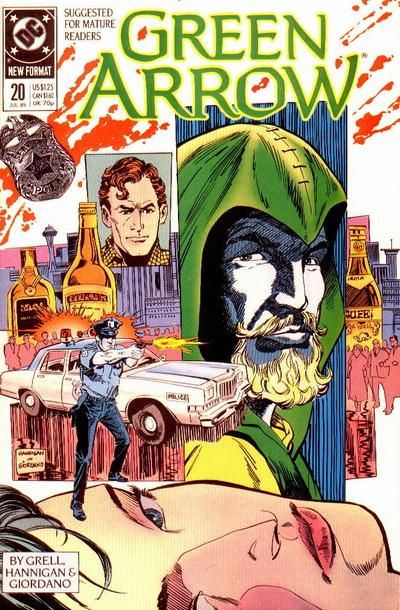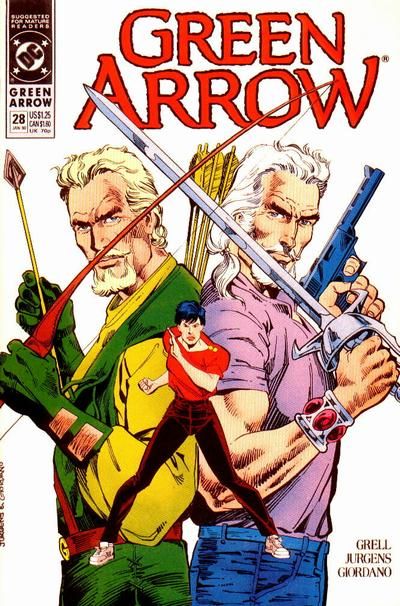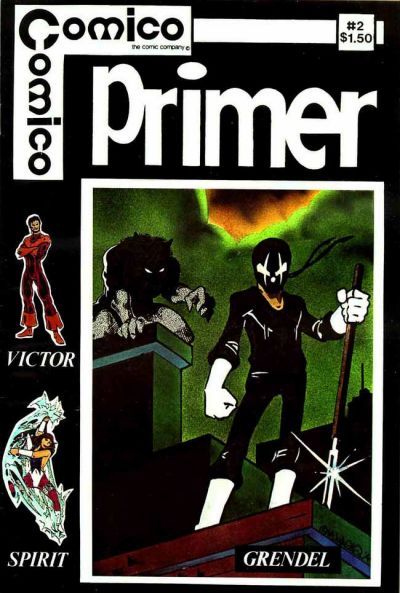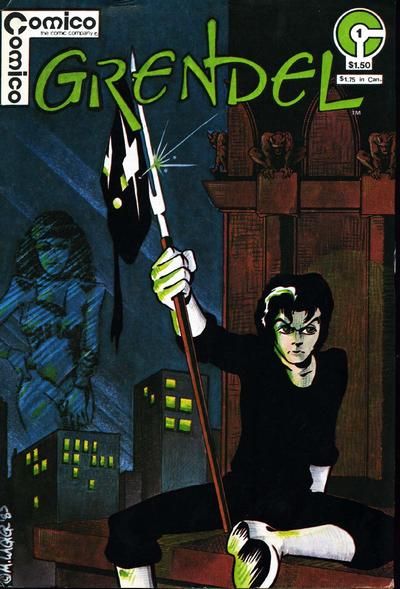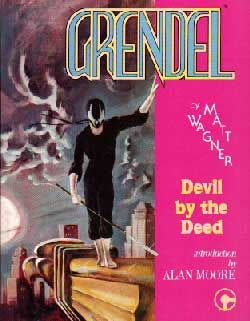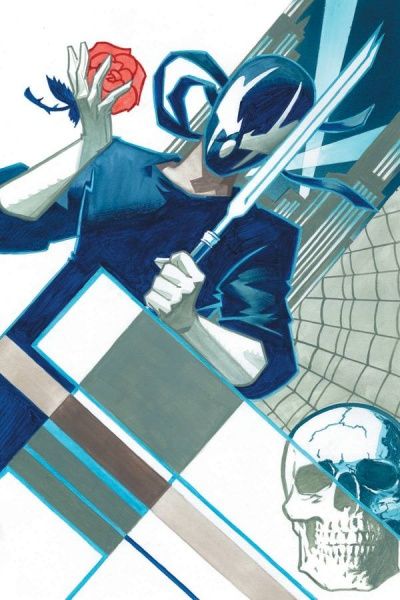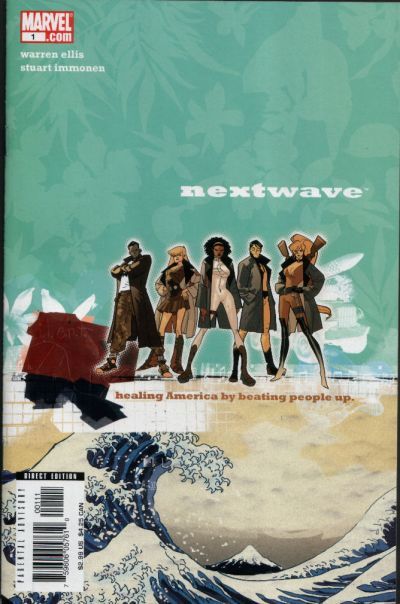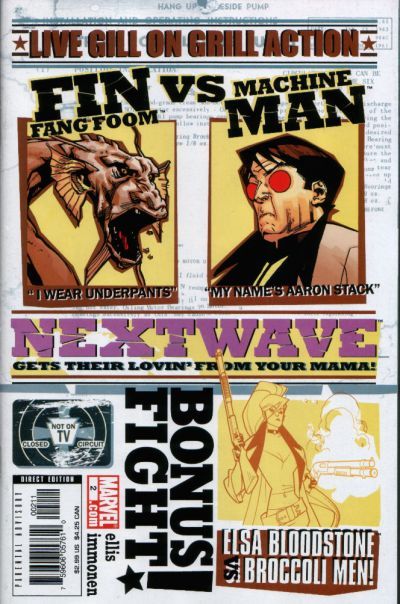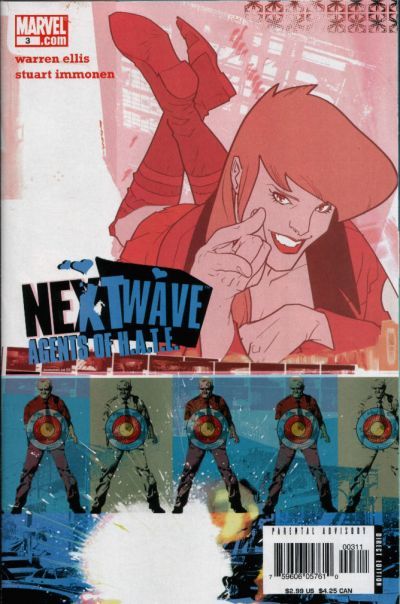This is the one-hundred and fiftieth in a series of examinations of comic book urban legends and whether they are true or false. Click here for an archive of the previous one-hundred and forty-nine. Click here for a similar archive, only arranged by subject.
For this, the 150th edition of Comic Book Urban Legends Revealed, I'm going to do a bit of a tie-in with the Top 100 Comic Book Runs countdown (which you can follow here), as each of this week's urban legends involves a comic run that is in the Top 100 (more specifically, all three are between #90 and #100)!!
Let's begin!
COMIC URBAN LEGEND: Green Arrow was never called Green Arrow in any of Mike Grell's Green Arrow stories.
STATUS: True in spirit, if not TECHNICALLY in practice.
As you may or may not already know, Mike Grell's take on Green Arrow in the late 80s was to strip the character down from his otherworldly superhero lifestyle and make him more of a vigilante type than a superhero.
Therefore, calling himself a name like "Green Arrow" would get in the way of that a bit, even if that was the, you know, name of the comic.
But then again, John Constantine didn't go around calling himself "Hellblazer," right? So it wouldn't be COMPLETELY shocking if he never called himself Green Arrow.
Anyhow, according to Grell's Wikipedia page, "in none of Mike Grell's Green Arrow stories is the character ever called "Green Arrow" anywhere but on the cover."
I thought this was a fascinating bit of info, but was it actually true?
To test it out, I broke out my Green Arrow run, and checked, and in the very first issue of Longbow Hunters, it is proven wrong, as Oliver refers to himself (while recapping his past) as "Green Arrow."
So the statement, as quoted, is technically false.
However, the true spirit of the statement is that Mike Grell specifically tried not to call Oliver Green Arrow, right?
And in NONE of the eighty issues of Green Arrow that Mike Grell wrote (nor the other two parts of Longbow Hunters) was the term "Green Arrow" used anywhere but on the cover.
That might sound hard to do, but Grell got around it by having everyone call him Oliver Queen, or Mr. Queen or Ollie or whatever.
In fact, if you re-read Grell's Green Arrow, for most of the run, he goes far out of his way to avoid talking about anything fantastical at all.
When Hal Jordan shows up, he's ringless and out of costume, and never talks about anything but normal stuff.
Later on, Grell takes this tact to the extreme, during the cute two-parter where Travis "Warlord" Morgan guest-stars for two issues.
Grell never has Morgan actually talk about Skartaris, simply has him make comments that we, the reader, know is about Skartaris, but if you were unfamiliar with Warlord, you'd be totally lost.
Right towards the end of his run, Grell has Arsenal guest-star, and it's actually pretty funny, because it's essentially the first time a real superhero has shown up in the series, and Grell makes Roy's costume look pretty darn silly.
Anyhow, does EVERY Grell Green Arrow story not use the term "Green Arrow"? Well, no, but come on, it was just the one issue, and it was the FIRST issue, and it wasn't even the Green Arrow regular series!! So while it is technically false, I think it is true in spirit.
82 issues without mentioning the term "Green Arrow" is still pretty darn impressive, no?
COMIC URBAN LEGEND: Matt Wagner refused to reprint his early Grendel stories for years because he was ashamed of their quality.
STATUS: False
Just last week, I discussed the troubles that early independent comic book pioneers like Gil Kane had in getting their work out to the comic book buying masses. The market for comic books just was not designed, at the time, for works like Kane's I Am...Savage to be made easily accessible to comic buyers.
By the 1980s, the advent of the Direct Market changed things dramatically. Now it was a lot easier to get work into the hands of comic readers, which opened up opportunities for independent comic book companies, but with such freedom also came looser standards, as the amount of professional-level comics probably did not meet the demand for comic books at the time. One of the results is that young artists, such as Matt Wagner, had a chance to produce comics where they might not have totally been ready to do so.
In Wagner's case, his earliest work on Grendel, which appeared at first in Comico Primer, and then in a short-lived Comico black and white series, was not up to the same standards as Wagner's later masterful work with the character.
In fact, once Comico ceased work on their black and white comics (including Grendel), Wagner rewrote the first three issues of the Black and White Grendel, and published them as a back-up in his Mage series. He later collected the back-ups into a one-shot called Grendel: Devil by the Deed.
(Dig that garish 80s trade dress)
By this time, Wagner had developed as a writer, and soon, he launched the ongoing Grendel comic for Comico, and the rest is, as they say, history.
However, for years, Wagner refused to reprint those early Grendel works - the original Comico Primer appearance and the three-issue black and white book. The rumor that was passed around was that Wagner was ashamed of the work and the poor quality, and did not want to see it reprinted.
In an interview with Matt Brady for Newsrama a couple of years ago, Wagner addressed these rumors head on -
There's this common misconception that I don't reprint those early Comico black and white Grendel stories because I'm ashamed of them. That couldn't be further from the truth. That's like saying I'm ashamed that I was once 13 or that I was once 22 or that I was once 31. I'm not. That story was later retold, re-done, and finished as Devil by the Deed. I just feel that it would be a little whoreish to reprint my early, incomplete work, just basically for the sake of a buck. I understand why people want to see it, and I've always said that I'd think about it as I got older, and maybe the 25th anniversary is a good enough reason to do it--I don't know. Maybe it is a good time to honor it in that fashion, to show everything that led up to where the character is now.
As you might know already, in 2007, Wagner ultimately DID decide that the 25th Anniversary was good enough reason to finally reprint these stories.
Wagner did another interview with Brady where he explained the change of heart (read it here), but it's basically just an elaboration of what he said in the above quote.
Thanks to Matts Brady and Wagner for the information!!
COMIC URBAN LEGEND: Nextwave had a name change because of trademark issues.
STATUS: True
When the amazing Warren Ellis/Stuart Immonen series Nextwave debuted in 2006, it was titled, appropriately enough, Nextwave.
That was the case for #2, as well.
However, without much fanfare, #3 had a different name.
The book was now called Nextwave, Agents of H.A.T.E.
I, and I'm sure many others, didn't think much of it, and just figured it was one of those "The Mighty Thor" instead of Thor or "The Invincible Iron Man" instead of Iron Man things.
You know, just a subtitle.
As it turned out, however, there was a bit of a trademark snafu, presumably with the big corporation Nextwave Wireless (although I do not know for sure that it is Nextwave Wireless they're talking about, although I do know Nextwave Wireless has a registered trademark on the name "Nextwave Wireless").
Stuart Immonen mentioned on a website, when asked about the change, explained that Marvel did not secure a clear-cut trademark, so while they MIGHT be all right as they were, they felt it was just better off to change the title officially to Nextwave, Agents of H.A.T.E.
Funny, huh?
Thanks to Stuart Immonen for the dirt!!
Okay, that's it for this week!
Thanks to the Grand Comic Book Database for this week's covers!
Feel free (heck, I implore you!) to write in with your suggestions for future installments! My e-mail address is cronb01@aol.com.
See you next week!


